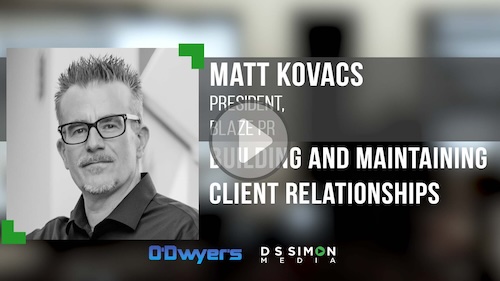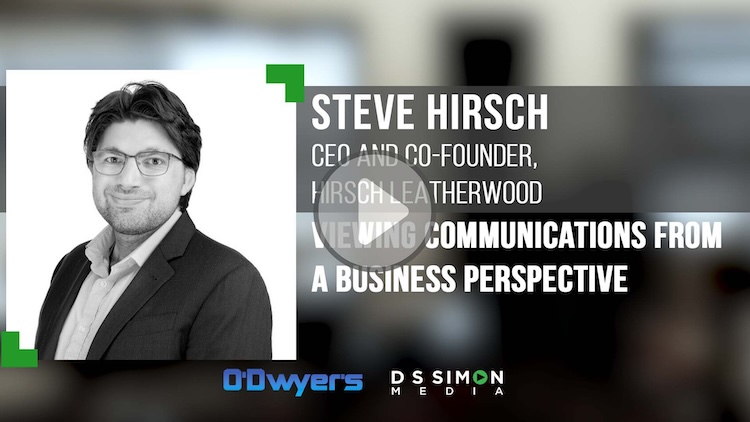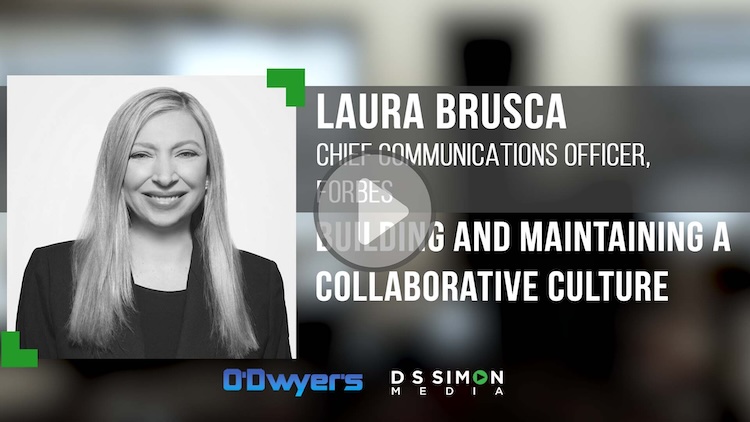|
|
After serving in leadership roles across a variety of PR firms – from global players to my own agency – I’ve participated in any number of agency searches and presentations. Recently, though, I played a role on the other side of the table.
A long-time client of our agency asked us to take the lead in conducting a search for a new investor relations firm for their company. After all, who better to evaluate an agency than an agency insider? We know how agencies operate, and we have a sense for what’s behind the presentation, and how an agency might actually operate on a day-to-day basis.
Leading and participating in this process provided a few interesting insights that might help agencies continue to refine their processes and presentations.
You have to do your homework. It was apparent when an agency went beyond the traditional background research about a prospective client. Some agencies spoke with reporters and industry analysts and peppered their presentations with these insights. During the screening process, after we whittled down the candidates to a handful of finalists, I offered a Q&A call with each agency, where they could ask me about the prospective client, based on my decade of work with them. Not every agency took advantage of this, and the ones that did ended up learning something that helped with their in-person presentation.
Don’t cobble together a team that hasn’t worked together. You can’t fake chemistry. During in-person presentations, it was easy to tell which agencies had solid working relationships and which brought together talent from different areas to form a team. People want to work with other people who get along, and clients are no different. They don’t want to sit across the table from a group of people who lack the short-hand conversation and banter that comes from working well together.
Be transparent. Some agencies have things they’d rather keep in the background, but those are the things that a prospective client’s antennae will pick up on during a presentation. And typically, these issues are around billing and billing rates. It’s better to place these issues front and center – or at least not try to hide or deflect them – than risk them becoming an issue somewhere down the road.
Accuracy counts. In my peer group, we all comment on the lack of attention to detail and accuracy among some younger professionals, but it was surprising to see this issue during the new-business process. Some agencies re-use materials, and unfortunately, the name of a prior prospect might show up when a presentation wasn’t carefully proofed. And if you can’t spell a prospective client’s name correctly, you’re almost sure to find yourself in the early elimination pile.
Stay in touch. I’ve noticed that the smart agencies that weren’t selected are finding opportunities to keep in touch. They’re judiciously sending information that might be of interest to the client, without being intrusive or in any way threatening to the agency chosen. At the end of the day, this is still a business built on relationships, and relationships can be a long-term play.
At times, we may overreach in the agency business, in a quest to dazzle a prospective client with a breadth and scope of services that are beyond what they’re looking for and beyond what they’ve asked for. But based on my recent experience, the moments that mattered came when the presentation went off-script, when an agency demonstrated real knowledge and understanding, and – more importantly – made the human connection with the client. In other words, the basics still count – a lot – in this business.
***
Larry A. Meltzer is a founder and principal of Dallas-based MM2 Public Relations.

 Larry Meltzer
Larry Meltzer








 Have a comment? Send it to
Have a comment? Send it to 
No comments have been submitted for this story yet.